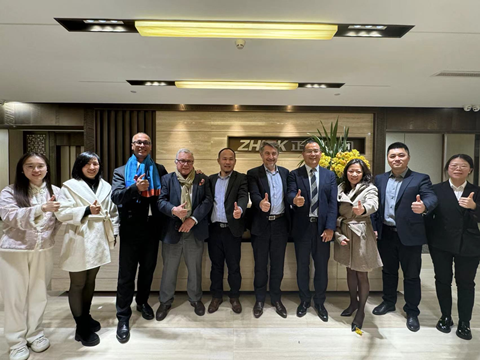
In a joint Letter of Intent with Zhink Group, Carbios will build a bio-recycling plant for its enzymatic depolymerization technology in China – setting its sights on a minimum annual processing capacity of 50,000 tons of prepared PET waste and an uptake of enzymatically recycled rPET in Asia.
Apparently, China is the largest PET producer in the world, representing 61% of global production and 67 million tons of annual PET output. Yet the companies believe that the country is capable of become a leader in rPET production, with 38% of the global rPET supply in 2021 consumed by China – extending outwards to 58% throughout Asia.
Carbios also notes that China is a ‘key transformer’ of PET into resins and fibres for use in the packaging and textile intudstries, representing 78% of PET fibre transformation globally. The country’s sustainability and “two carbon” policies are expected to be ‘main drivers’ in the Chinese PET recycling industry.
Enzymatic depolymerization can reportedly process all types of PET waste, including hard-to-recycle waste like opaque and coloured bottles, multilayer food trays, and textile waste. It is thought to reduce CO2 emissions by 57% compared to virgin PET production, avoid solvents, and produce ‘virgin-like’ recyclate.
Now it will be utilized by Zhink – which already claims to produce 3 million tons of PET every year – with the aim of increasing its recycled PET capabilities, pursuing its sustainable competitiveness objectives, and becoming a leader and competitor in the PET and textiles industries.
As official discussions with Zhink open, Carbios views the agreement as an initial step in the global rollout of its licensing model, contributing to its goal of becoming a leading technology provider in the PET recycling space by 2035. All of Carbios’ families of patents own one or more titles in China, the company says, with 28 titles for its PET bio-recycling technology currently in force in the country – covering the industrial process and the enzymes used, including variants that will be used in the industrial process.
“There is great momentum in China to accelerate the circular economy and meet its target of carbon neutrality by 2060,” says Carbios CEO Emmanuel Ladent. “The technology developed by CARBIOS makes perfect sense in this context: capable of recycling all types of PET waste, it promotes a circular economy with high-quality products and significantly reduces the carbon footprint of industries.
“As a leader in PET production, Zhink is considered as a key partner for introducing our technology into China and will stimulate our international deployment.”
Zhu Guoyang, president of Zhink Group, continues: “For Zhink, the strategic focus is on the development of two global industries, PET and textiles, and to be a leader in the industry with sustainable competitiveness. We are actively promoting our subsidiaries to develop our PET recycling portfolio and are very interested in CARBIOS’ revolutionary bio-recycling technology to reduce carbon emissions.”
“With a 20-year presence in China and a solid R&D and manufacturing footprint in the region, Novonesis is keen to share its local know-how for the successful implementation of CARBIOS,” adds Tina Sejersgård Fanø, Executive Vice President, Planetary Health Biosolutions, Novonesis.
“Novonesis has a strong long-term partnership with CARBIOS, and an exclusive one for the production of its patented enzymes for PET bio-recycling plants under license. We are ready to meet CARBIOS’ needs for future licensing projects in the region and beyond.”
The news comes alongside Carbios’ first industrial-scale enzymatic PET recycling plant, which is currently under construction in Longlaville, France. After being granted a building permit and operating authorization last year, a groundbreaking ceremony was held in April 2024; the construction process is apparently on schedule to deliver ‘significant quantities’ to customers in 2026.
In other news, Trinseo has opened a polymethyl methacrylate depolymerization facility in Rho, Italy. It is believed to complement other recycling technologies, lower the carbon footprint of virgin methyl methacrylate, and take steps towards closing the loop on acrylic recycling.
If you liked this story, you might also enjoy:
How are the top brands progressing on packaging sustainability?
The ultimate guide to global plastic sustainability regulation













No comments yet